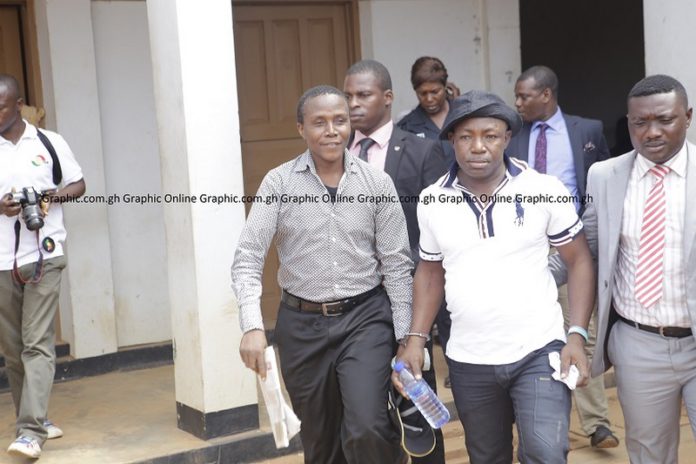The unanimous guilty verdict of the jury regarding the guilt of Asabke Alangdi for conspiracy to commit murder, whilst at the same time delivering a hung verdict [4-3] in the case of Gregory Afoko on the same charge, the person he was accused to have conspired with highlights the severe challenges with the jury system, the Attorney-General and Minister of Justice, Godfred Yeboah Dame has said.
This challenge confronting the jury system, according to the Attorney-General was being addressed as steps are underway to remedy as part of proposals for amendment of many parts of the criminal procedure laws of Ghana.
The accused persons in the Republic versus Gregory Afoko and Asabke Alangdi were arraigned before the High Court, Accra, on two counts of murder contrary to section 46 of the Criminal Offences Act, 1960 (Act 29) and conspiracy to commit murder contrary to sections 23(1) and 46 of Act 29.
For the offence of murder, the particulars were that the accused persons intentionally caused the death of one Adams Mahama, former Upper East Regional Chairman of the New Patriotic Party (NPP), by unlawful harm in 2015.
For the offence of conspiracy to commit murder, the particulars disclosed that the two accused persons agreed to act together with a common purpose to commit crime, namely murder.
Being offences, the punishment for which is death, in accordance with article 19(2) of the Constitution, the accused persons were tried by a judge and jury (the jury being the decider of the guilt or otherwise of the accused persons).
For the offence of murder, the verdict of the jury shall be unanimous.
Any verdict of the jury in a case punishable by death, which is not unanimous, is of no effect and means the jury has failed to reach a decision or has resulted in what is popularly described as a “hung jury”.
Verdict
On Thursday April 27, 2023, the seven-member jury delivered their verdict as follows:
By a decision of 4 – 3, accused persons are not guilty of the offence of murder.
By a unanimous decision, Asabke Alangdi, is guilty of the offence of conspiracy to commit murder.
In accordance with section 285(1) of the Criminal and Other Offences (Procedure) Act, 1960 (Act 30), the Justice of Appeal sitting as an additional Justice of the High Court proceeded to pass the mandatory sentence of death on the Asabke Alangdi.
By a decision of 4 – 3, Gregory Afoko, is not guilty of the offence of conspiracy to commit murder.
The lack of unanimity in the verdict of the jury regarding the offence of murder for which both accused persons stood trial, and the offence of conspiracy to commit murder in the case of Gregory Afoko, dictates that the accused persons must be tried before another jury.
Comments on the case and the A-G’s caution
In a press statement issued Friday morning (April 28, 2023) by the Attorney-General, Mr Yeboah Dame entreated members of the public, including lawyers, to be guided accordingly and desist from comments which have an undue tendency to jeopardise the sound and efficient administration of justice.
The A-G wrote
“Section 285 (4) of Act 30 stipulates thus:
“Where the jury are not unanimous in their opinion, the Justice shall, after the lapse of a time. that the Justice considers reasonable, discharge the jury.
Section 286 of Act 30 also provides:
“Where the jury is discharged, the accused shall be detained in custody or released on bail and shall be tried by another jury.”
He said the laws of Ghana require the accused persons, in the circumstances, to be tried before a new jury. The Republic is bound by same.
He added that the instant case, particularly the “unanimous verdict of the jury regarding the guilt of the 2nd accused for conspiracy to commit murder, whilst at the same time delivering a hung verdict in the case of the 1st accused on the same charge, highlights the severe challenges with the jury system, a situation the Attorney-General is taking steps to remedy as part of proposals for amendment of many parts of the criminal procedure laws of Ghana.”
“The Attorney-General hereby respectfully, entreats members of the public, including lawyers, to be guided accordingly and desist from comments which have an undue tendency to jeopardise the sound and efficient administration of justice,” he stated.
ALSO READ:

